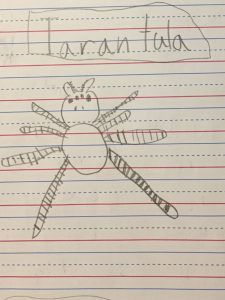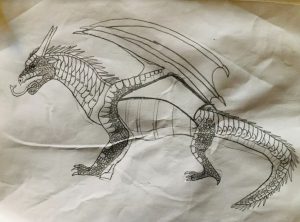Once upon a time, there lived two powerful girls, Khadija and Janice. They came from two different backgrounds. Khadija was from Saudi Arabia and Janice was from Pennsylvania in the United States.
Kahdija went through a lot of trauma in her life, like terrorist attacks, war from America, loss of food, destruction, no education, and more.
Janice was hurt by a broken family, 9/11, police brutality, bullying, racism, and even more.These girls had been through so much pain and fright.
They thought that maybe, if they stood up, maybe they could make a change. So, these young teens made their communities a little bit better by hosting religious ceremonies and meetings, daycares, protests and other forms of community activism.
A couple years go by and it’s now 2027. The world got better, but there were still flaws that the world thought couldn’t be healed. That was all going to be changed soon!
Khadija was finally able to go to college but not in Saudi Arabia. She became a college exchange student at Temple University in Philadelphia. She didn’t know much English, but it was a good thing colleges teach ESL.
The catch was that Janice was a tutor for foreign exchange students,and she spoke Arabic because because she had lived in Mecca for two years as a child; due to her dad being in the Army. Throughout her two years there, she did not learn much because her family was so determined that Muslims were bad.
When they met, Janice wasn’t very excited to see that Khadijah was Muslim. Janice automatically said no to teaching her.
Over time, they both learned that Janice was the only one that could teach Khadijah so Janice decided maybe she could get to know her.
Khadijah and Janice started to get to know each other. Janice realized that both she and Khadijah were very alike and they both loved to help their community. They decided they wanted to make a change in the world. It took awhile but they came up with many ideas.
They did food drives for the community and classes for how people could help. Then, they finally came up with something really unique: an app!
This app would allow people to put out information on helping out the community and include events such as concerts,prayer meetings, fun things for kids and cleaning the city. It started small but it soon got bigger, the whole campus knew!
Two powerful girls from very different environments managed to create something so beautiful. It soon got all over the country and everyone played a part in saving their communities.
It’s now 2034, and the world managed to become so great, with many people around the world supporting their communities through food, religion, fun, safety, and happiness.Khadijah and Janice are still best friends. Their kids are growing up together. and they both are beside each other as members of the United Nations.
The world needs you. It always starts with community activism, but it will get bigger. Look what the Black Lives Matter protest did. It started off in just some community and it traveled nationwide and now we have the whole world able to protest for a cause so big. If you never give up, you will have a revolution…



